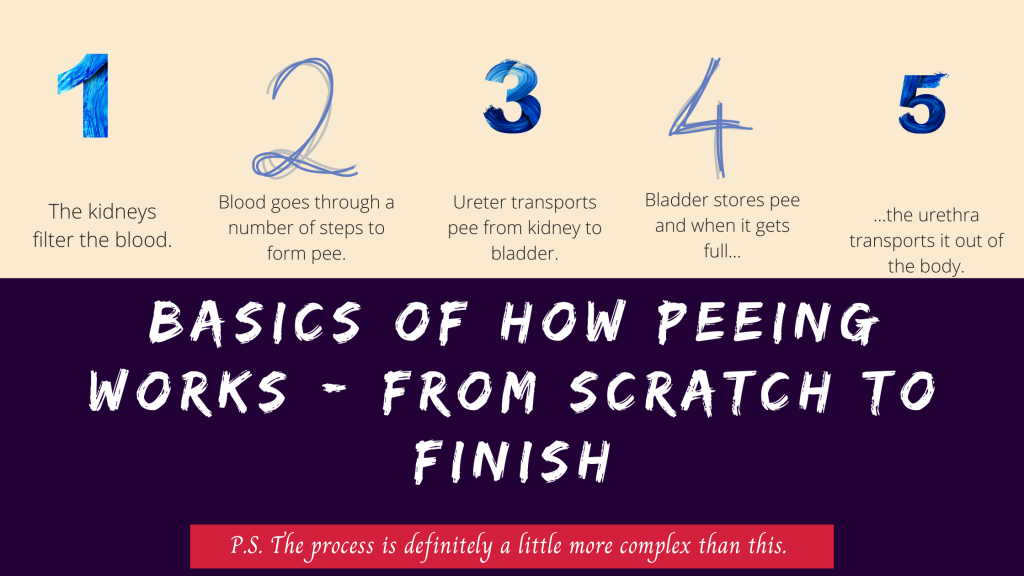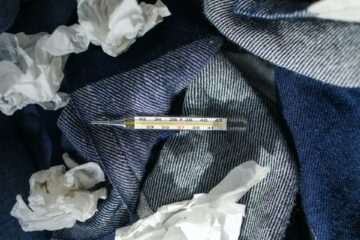Tired of the wet nights, soggy sheets, and the embarrassment? It’s frustrating having to cleanup every night after your child. It’s worse when you feel the child is old enough to have stopped wetting the bed. While bedwetting is more common in young children and teens, a few adults experience wet nights. Good news is there are several techniques on how to stop bedwetting.
What is Bedwetting, Nighttime Incontinence, or Nocturnal Enuresis?
Bedwetting is a term used to describe the inability of a child to have dry nights. Many kids stop wetting the bed at the age of 3 to 6 but a few kids do not stop. For a child who is 7 or older, nighttime incontinence or nocturnal enuresis is the synonymous medical term for bedwetting.
Incontinence simply means the inability to control one’s bladder while enuresis actually just means bedwetting – hence nocturnal enuresis means nighttime bedwetting. There are 2 types of bedwetting:
- Primary bedwetting: In this case, the said child (or teen and adult) has never been dry. The child might have experienced a few dry nights but has never gone dry for at least 6 months. The exact reason why this happens isn’t exactly known. And it is more common in boys than in girls.
- Secondary bedwetting: Unlike primary bedwetting, in this case, the individual has been dry for a period of at least 6 months. Sometimes, this individual can be one that has never been a primary bedwetter. This type of nocturnal enuresis is most likely an indication of an underlying problem. These problems include stress, diabetes, urinary tract infection, constipation, and sleep apnea.
Why Do Kids Bed-wet?
Some parents think that a child who wets the bed is most likely doing so because the child is too lazy to go pee in the night. Or that the child is just acting out but that’s rarely ever the case. Bedwetting is an involuntary act, the child as a matter of fact has no control over it.
The first step on how to get your child to stop bedwetting will be to try and trace the possible reasons why your child still has wet nights.
- Family history: It’s the genes. Bedwetting often runs in families, hence if your child bed-wets, chances are his parents were bedwetters. If the parents weren’t, then other relatives might have been. Also, some parents testify that their kids often stop bedwetting at the same age they did.
- A small bladder: A small bladder is an indication that a child might wet the bed, most especially if the child is a deep sleeper. Deep sleepers are unable to respond to the stimulus that suggests a full bladder.
- Delay in the developmental ability to control one’s bladder especially at night.
- Fluid intake at bedtime: Taking lots of fluids at bedtime will lead to the production of more urine. Fluids containing bladder irritants like caffeine often worsen things.
- Bedwetting triggers: This is a common reason for secondary bedwetting and triggers include emotional states (includes stressful and positive events), certain foods, or drinks that irritate the bladder.
- Insufficient amount of the hormone, vasopressin, or antidiuretic hormone ADH. This hormone helps the body produce a lower amount of urine at nighttime. It regulates the amount of urine to be produced, and even the concentration of the urine.
Note:
Dehydration is a bladder irritant as well so it is advisable that your kids stay properly hydrated during the day. Caffeine is also a bladder irritant that’s present in cocoa, coffee, and chocolate milk. Other irritants include citrus juices, artificial flavorings, and sweeteners. These often lead to frequent urination spells.
Is Bedwetting a Sign of an Underlying Medical Condition? When Should I Call a Paediatrician on How to Stop Bedwetting?
Parents often start ringing up their child’s paediatrician at age 5 to 7. But these parents often just get reassurance from the paediatrician. Paediatricians do offer helpful recommendations on how to get your child to stop bedwetting and calm your worries by answering your many bedwetting questions.
While bedwetting is usually not something to be worried about, there are legit reasons why you should call a doctor. Even if that reason is to put your worries to rest. Very many children eventually outgrow bedwetting, in fact only about 2.2 percent of young adults experience nighttime incontinence.
If your child is below 7, there’s really no need to call a doctor. Why? Because your child will outgrow bedwetting – most kids do by this age. That’s however not the only time you should call a doctor. Call your doctor if your child suddenly starts bedwetting (secondary bedwetting), snores while sleeping or experiences daytime incontinence.
Nighttime incontinence does point to a few medical conditions like:
- Urinary tract infection UTI: UTI can trigger an episode of bedwetting and a simple test will detect this. How can you help? Watch out for bloody urine, painful urination, or a burning sensation while peeing.
- Constipation: How’s your child toilet ministry going? The rectum is behind the bladder and during constipation, the rectum pushes against the bladder, leading to incontinence. This might also cause your child to wet themselves during the daytime if they don’t get to the bathroom on time.
- Sleep apnea: Though a respiration problem, it can often trigger wet nights.
- Stress, anxiety, or major family/school changes: If your child has been dry for a while, then this might be the suspect – have a talk with your child or call a psychologist.
- Attention deficit hyperactivity disorder ADHD: Most kids with ADHD often bed-wets hence, that’s just one more thing to be on the lookout for.
Management – How to Stop Bedwetting
Kids who are motivated to stop bedwetting do get faster results than those who do not. If it doesn’t bother your kid, there’s very little you can do to help him stop it. The following are ways to help your child get to the world of dry nights:
- Restrict the intake of fluid before bedtime – This isn’t always effective and your child might see it as a punishment hence this method is preferable for older children who are well motivated. Fluids with caffeine should be more strictly regulated, as well as other bladder irritants.
- Avoid late-night snacking, this includes foods that will irritate the bladder.
- Conditioning training – Often considered as one of the most effective methods, it involves the use of an alarm device that goes off once wetness is detected. This works the majority of the time if done steadily for about 4 months. It associates their sensation of a full bladder with getting up to use the bathroom. The devices consist of a moisture sensor and an alarm. The sensor is attached to the pajamas (or underwear) while the alarm is attached to the shirt. There are different models and your paediatrician can guide you on proper usage.
- Pee before going to bed – The aim is to void the bladder leaving it empty. Not a very effective technique if done in isolation. But it does work for some children. Also, ensure that your child goes to bed early. Why? Because most children might not wake up to go pee on their own if they are deep sleepers and this is usually the case if they aren’t getting enough sleep.
- Waking the child up in the middle of the night to go pee – a temporary solution employed while you wait for the child to eventually grow out of it. But this only frustrates you because you’ll have fewer hours of sleep.
- Ensure children can easily reach the bathroom at night – provide a lamp if the lights are usually off so the child doesn’t have to crawl through the dark accessing the bathroom. It’s the least you can do if your child is able to wake to the sensation of a full bladder.
- Be ready for an episode: Your child won’t stop bedwetting in one day so it’s best you use incontinence pads, plastics sheets, disposable underwear, adult diapers, or pull-ups/absorbent underwear and bedsheets. Why? These make cleanup easier and your mattress doesn’t get soiled.
- Do not tease, punish, or blame the bedwetter for bedwetting. This might even worsen the problem as it might add to their stress. Be supportive and encouraging – your child will never forget the efforts you made.
- See a Paediatrician: They offer valuable bedwetting solutions.
- Medications: Medications help reduce the production of urine by the kidneys. Recommended for 7 years and above. Medications are temporary solutions and usually have side effects. Stopping the medication will stop dry nights as well. They’re useful when your child has to go for a sleepover.
Extra Tips on How to Successfully Manage Bedwetting Kids
Though most kids will stop bedwetting at age 10, very few bed-wet at that age, it is advisable that you not only be fixated on the bedwetting itself. Talk to your child and know how many psychological issues this might be causing him such as low self-esteem.
To prevent rashes on the genitalia region of the child, make sure the child doesn’t sleep in the soiled clothes. Keep a pair of fresh clothes nearby. Remember that bedwetting is embarrassing and discomforting to young children, incontinent adolescents, and adults.
“Sometimes, I wonder if I’m ever going to fully stop bedwetting. Last year, I started keeping a wetting calendar and when I went 4 months without an episode, I was anxious. I kept waiting for the next episode while hoping there’ll be none.” says Eyi, a 15-year-old teen who still experiences wet nights.
Even if your child doesn’t stop bedwetting anytime soon, don’t give up.
Note: Before making the trip to see a doctor, make notes on signs and symptoms, recent family changes or plausible cause for stress, family history of bedwetting, and medications. The visit should be after age 7.
Should I reward my child every night he stays dry? It won’t work on all children and remember, no punishments. And just like Eyi, it will be helpful to keep a calendar and progress does deserve to be celebrated.
As an adult that bed wets, what should I do?
- See a neurologist in case the bedwetting is an underlying cause of something more serious.
- Follow the same managing tips above.
- Consider medications and very rarely, surgery.

The Bedwetting Dream
We’ve all had one of these dreams. These dreams usually involve the dreamer peeing in the dream only to discover that they’re in fact bedwetting. If your child has these dreams, it can serve as a useful reminder to wake up. In essence, if your child is a bedwetter, then peeing in their dreams should be a no-no.
Nighttime incontinence should not get you overly worried. Children eventually grow out of it and with the right managing techniques, you can help your child to stop bedwetting. That’s all for incontinence 101.



4 Comments
Samuel Ifeanyi · July 2, 2020 at 1:42 pm
This answers a number of questions. It was worth the time!
Naga Odigie · July 4, 2020 at 8:56 pm
Glad it did!
Philemon · July 7, 2020 at 7:49 am
Another very fine piss ? (piece actually) Naga.
Apart from touching lives and helping mums, youd be a great mum.
Naga Odigie · July 7, 2020 at 12:21 pm
Hahaha, nice wordplay. Awwn, that’s so sweet, thanks!
Comments are closed.